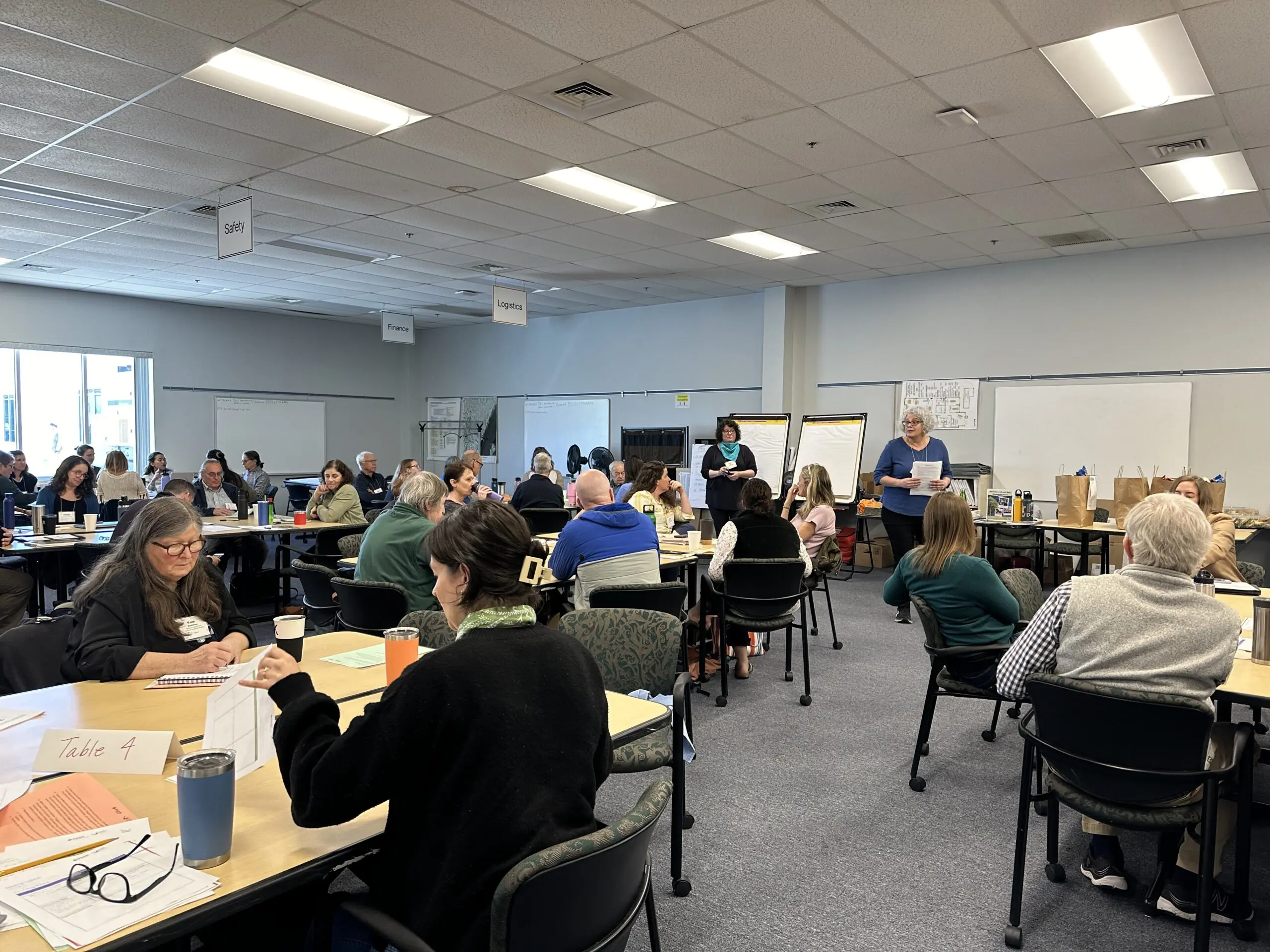Post by Annie Cox
This spring and in partnership with the New Hampshire Coastal Adaption Workgroup (NH CAW), PREP kicked off the Adapting Together workshop series. This series is a first step in co-designing a technical assistance program to advance community resilience in the Great Bay watershed. To connect people across the watershed, three workshops were held in Portsmouth, Rochester, and Kingston, and a focus group representing the upper watershed communities was held over Zoom. Cumulatively, the Adapting Together series was attended by 83 technical assistance providers, funders, residents, municipal staff, and nonprofits, representing 30 communities. Adapting Together is funded by Great Bay 2030.
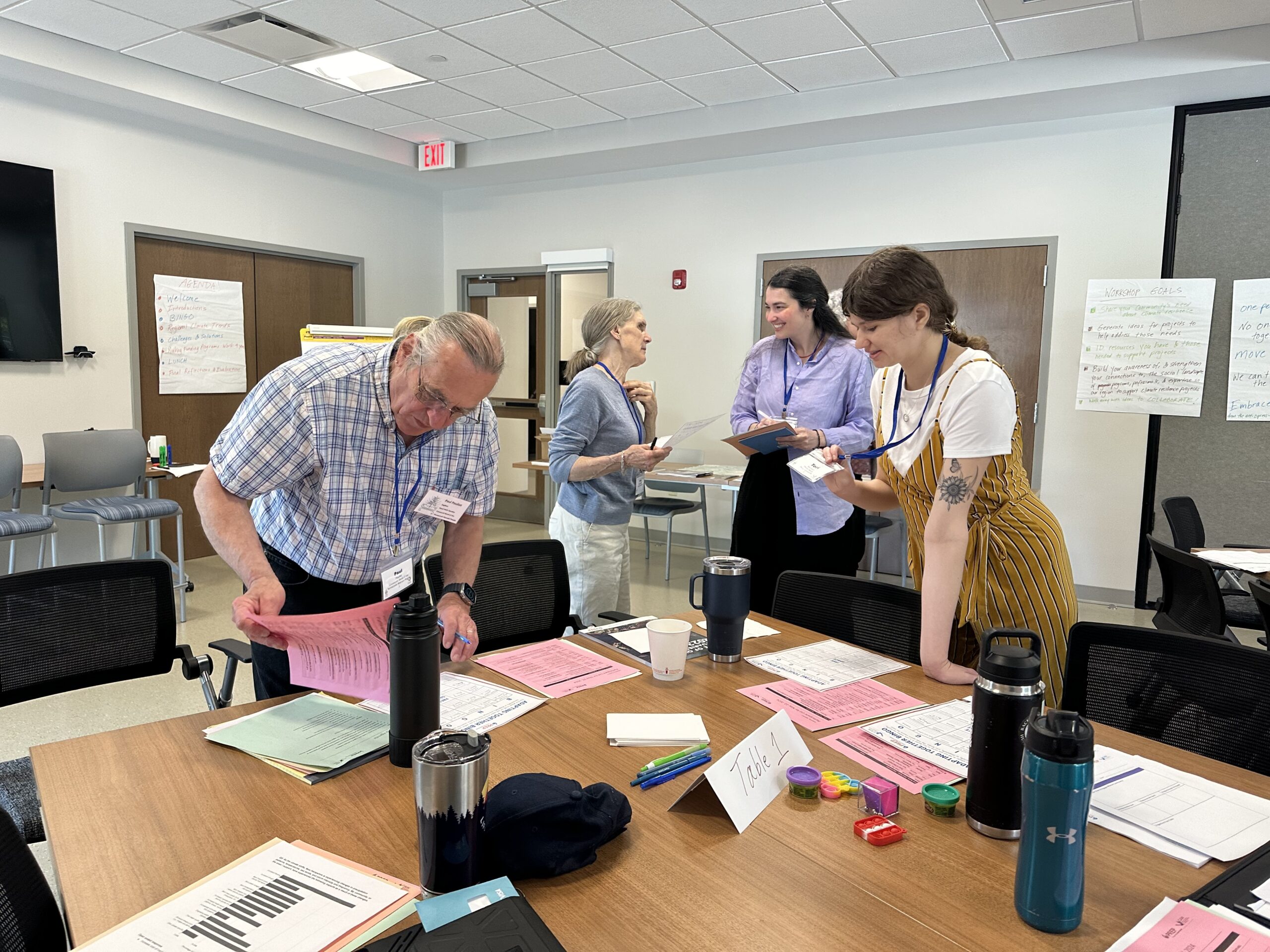
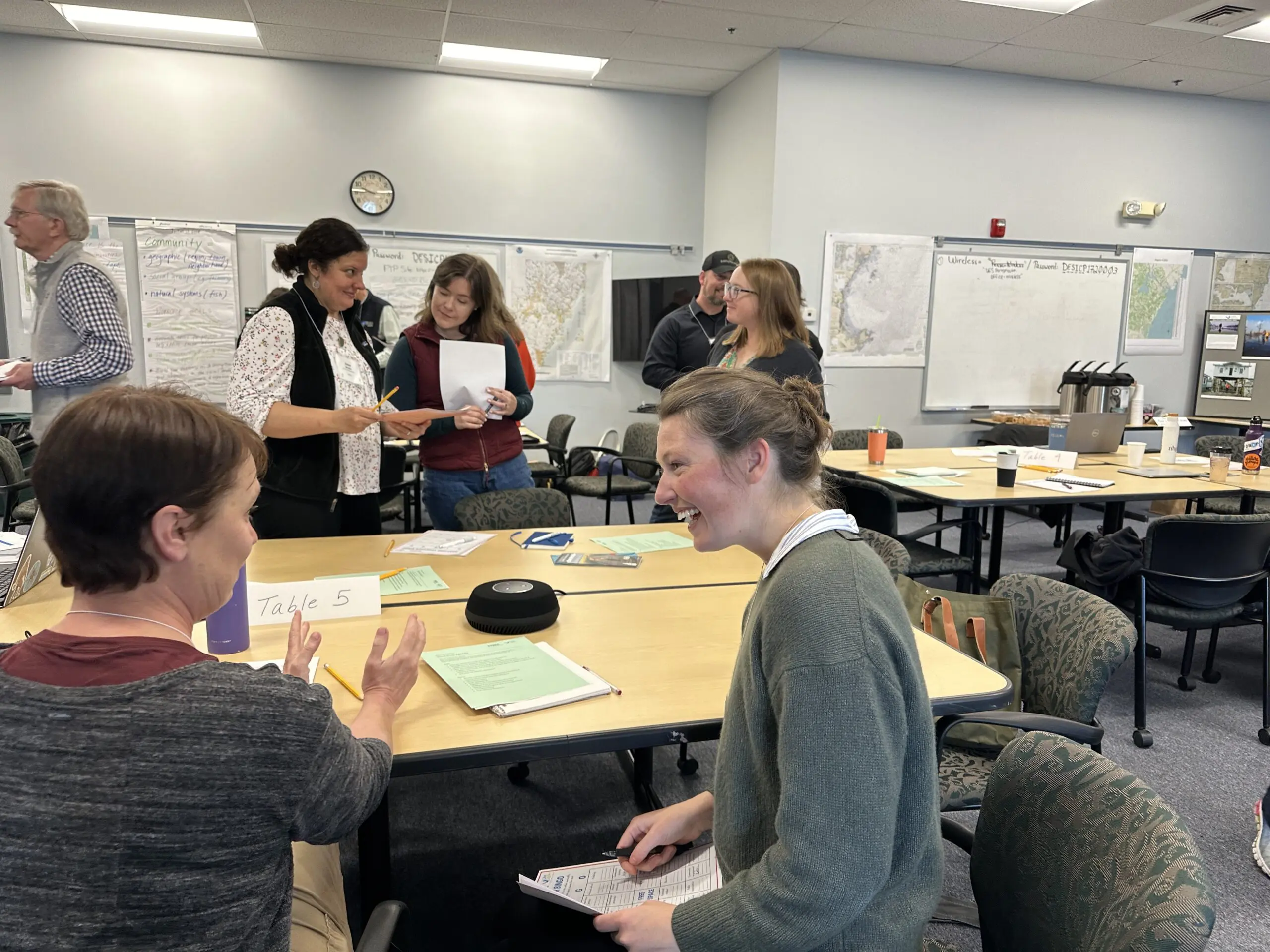
Participants shared that they attended these events to gain insights into regional climate resilience efforts, driven by their passion for the environment and concern about the impacts of climate change. They reported that their highest priority climate impacts were flooding and heat concerns, followed by those involving invasive species, milder winters, species migration, and food security needs.
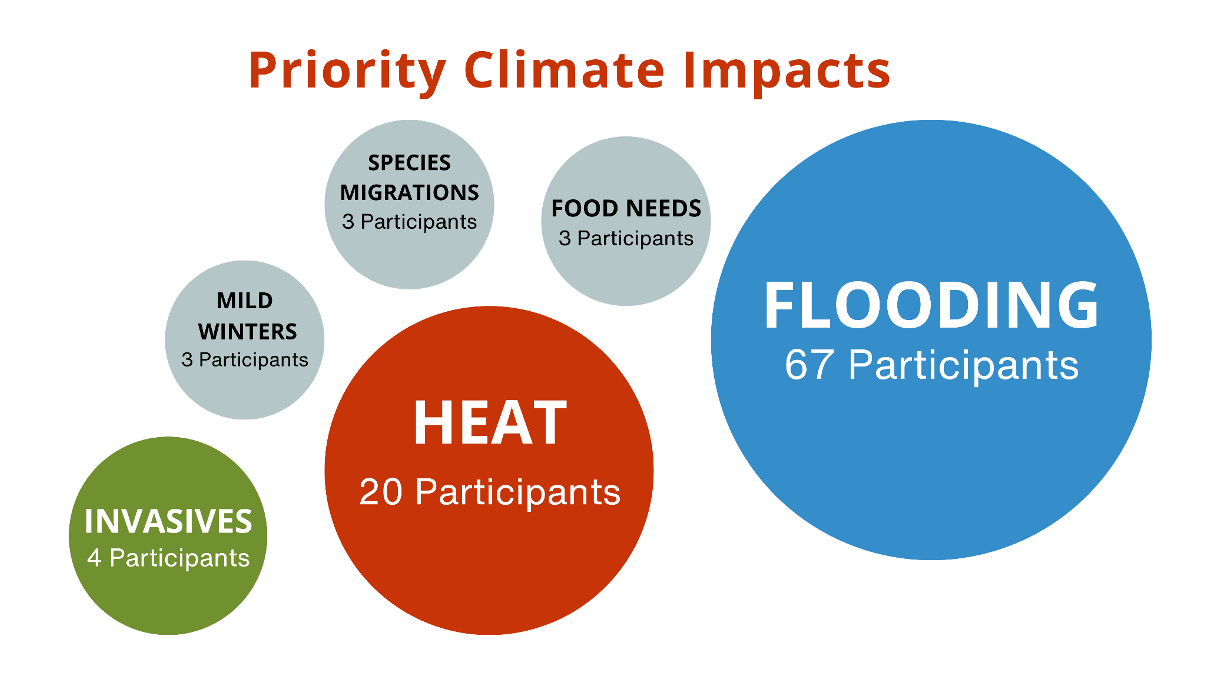
The events were designed to bring people working in different fields together to share and learn how climate change will impact their work. Around the table, public health workers sat together with natural resource providers, municipalities, and recreation users. The impact of connecting with a diverse group of individuals was resounding. As one participant shared, “This workshop has been fantastic! The diversity of people should be gathered regularly to stay up to date on local agencies and actions.”
Together, individuals from 26 Great Bay Watershed towns and cities shared concerns over climate change impacts, identified resource needs, generated ideas for progress, and made recommendations for how funders can be more effective allies for communities working toward climate resilience.
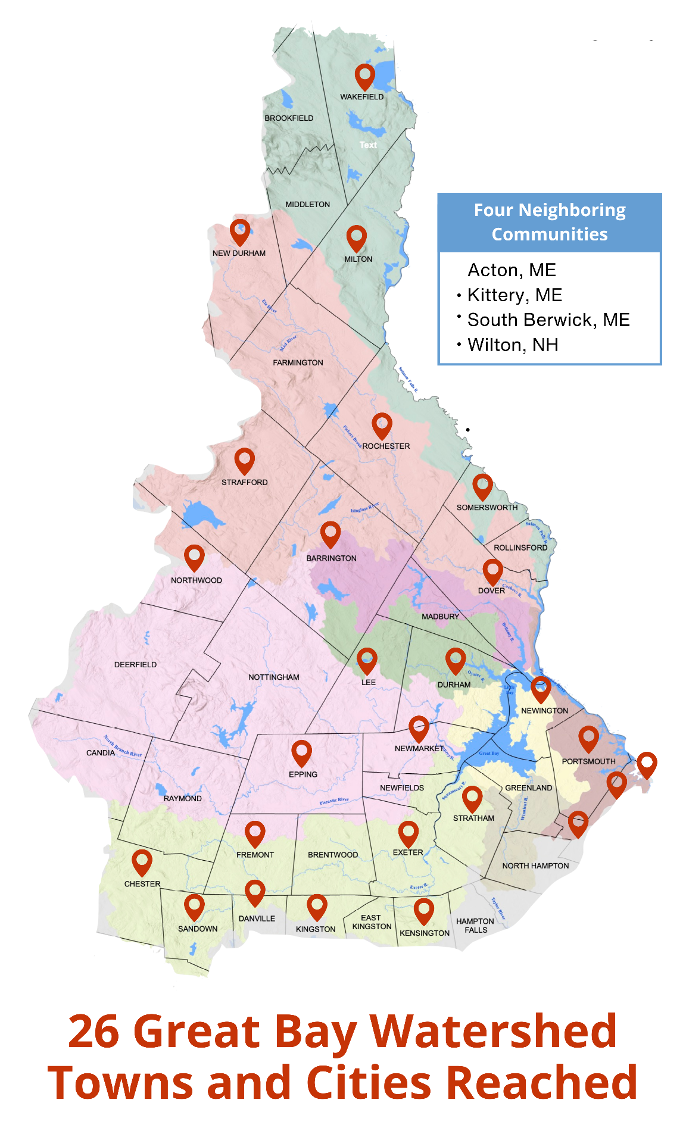
What's Next for Adapting Together
NH CAW and PREP have now released a full report. It summarizes the workshop findings and reflect considerations for developing the technical assistance program and collaborating across NH’s coastal watershed. As a workgroup for the Great Bay 2030 Initiative, NH CAW will seek funding to implement the technical assistance and funding program for 2025-2028.
With this funding, Adapting Together will foster more connected and community-driven efforts in the future by demonstrating the power of collaborative approaches to climate resilience. Its initial success highlights how engaging people from diverse backgrounds and sharing collective knowledge can drive meaningful, community-centered solutions to climate challenges.
If you have questions and/or want to get involved in the Adapting Together program, please contact Annie Cox, PREP's Watershed Resilience Manager:
Email: anne.cox@unh.edu | Phone: (603) 862-0219

